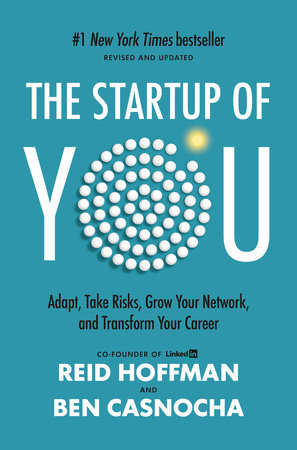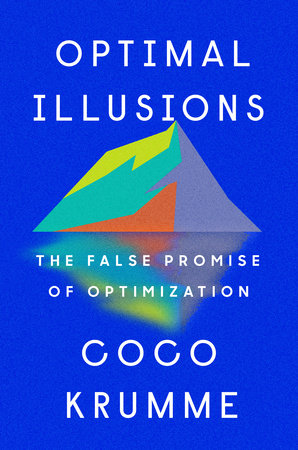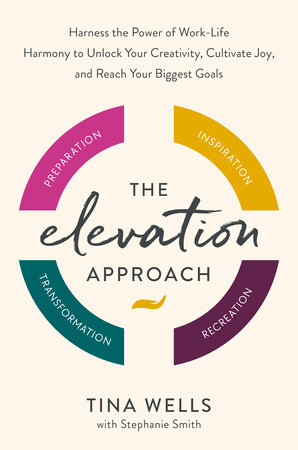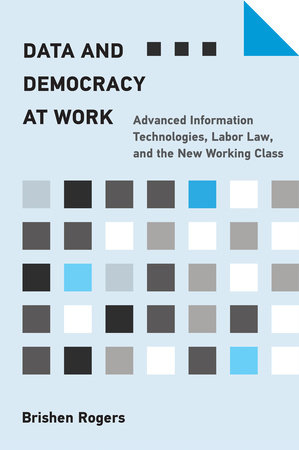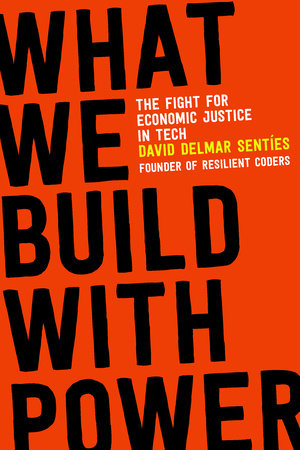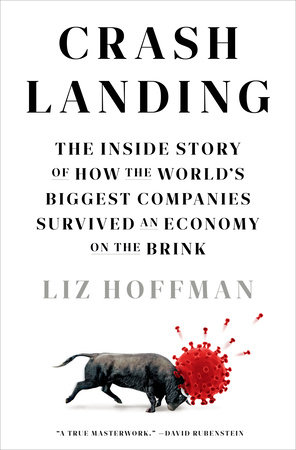Quick Summary
One Sentence Summary
“The Startup of You” by Reid Hoffman and Ben Casnocha presents a unique approach to career development, equating personal career paths to the dynamics of a startup.
Big Idea
The central theme is that individuals should manage their careers as entrepreneurs do their startups, focusing on competitive advantages, risk management, and network building.
Five Key Ideas
- Adaptive Mindset: Emphasizing the importance of adaptability in an ever-changing job market.
- Permanent Beta: Encouraging continuous learning and self-improvement, much like a software in perpetual beta.
- Unique Assets: Identifying and leveraging unique skills and experiences that set you apart.
- Network Intelligence: Building and maintaining a strong network for opportunities and insights.
- Risk Management: Understanding and managing risks associated with career decisions.
Actionable Advice
- Build a Diverse Network: Cultivate a network of relationships across different fields and expertise.
- Take Intelligent Risks: Assess risks and opportunities carefully before making career moves.
- Invest in Yourself: Dedicate time and resources to learning new skills and staying current in your field.
About the Author
Reid Hoffman is a co-founder of LinkedIn and a renowned entrepreneur, while Ben Casnocha is an award-winning entrepreneur and author.
Read Next
- “Lean In” by Sheryl Sandberg: For insights into leadership and navigating the corporate world.
- “Zero to One” by Peter Thiel: For a deeper understanding of startup dynamics and innovation.
- “Drive” by Daniel H. Pink: To explore the motivational aspects of career and personal development.
In Depth
Adaptive Mindset
The modern job market is a rapidly changing landscape. This unpredictability requires an adaptive mindset. To thrive, one must be as dynamic and flexible as a startup navigating uncharted territories.
In “The Startup of You,” Hoffman and Casnocha assert that adaptability is not just a desirable trait but a necessity. They argue that individuals should think of themselves as businesses-of-one, constantly iterating and evolving. This mindset isn’t about reacting to change after it happens; it’s about anticipating and preparing for it.
A striking example in the book is the story of a professional who found himself in a declining industry. Instead of waiting to become obsolete, he proactively diversified his skills and shifted to a growing field. This story embodies the essence of an adaptive mindset – recognizing the winds of change and adjusting your sails accordingly.
The book emphasizes the importance of being in a state of “permanent beta.” This tech industry term suggests that a product is never finished, always in development. Apply this concept to your career: always be learning, growing, and evolving. As Hoffman and Casnocha put it:
“You remake yourself as you grow and as the world changes. Your identity doesn’t get found. It emerges.”
In practical terms, an adaptive mindset means:
- Staying Informed: Keeping abreast of industry trends and emerging technologies. Know what’s happening, not just in your field, but in related and even distant ones.
- Skill Development: Regularly updating and expanding your skill set. This could mean taking courses, attending workshops, or simply learning from your network.
- Flexibility: Being open to new opportunities, even if they deviate from your original career plan. Sometimes, the best opportunities are the ones you didn’t foresee.
- Embracing Change: Viewing changes in the industry not as threats, but as opportunities to grow and learn.
This approach can feel daunting. It requires a constant balancing act between focusing on your current role and preparing for future shifts. However, the payoff is significant. An adaptive mindset doesn’t just safeguard your career; it also opens doors to new opportunities that a more rigid approach might miss.
Remember, adaptability isn’t about constant, chaotic change. It’s about thoughtful, strategic evolution. It’s recognizing when the rules of the game are changing and being prepared to play a different game if necessary.
In a world where change is the only constant, adaptability isn’t just a tool for survival; it’s a strategy for thriving. “The Startup of You” paints a clear picture: those who adapt, succeed. The choice is yours: be a passive bystander to change or an active participant in shaping your career trajectory.
Permanent Beta
Permanent Beta is a concept borrowed from the tech world. It suggests that a product, or in this case, a person, is never fully finished, always evolving. In “The Startup of You,” this idea is central. It implies that we should always consider ourselves a work in progress.
Hoffman and Casnocha argue that in the fast-paced, ever-changing job market, resting on your laurels can be risky. The concept of Permanent Beta encourages continuous learning and self-improvement.
They tell the story of a marketing executive who realized that digital marketing was overtaking traditional methods. Instead of resisting, she immersed herself in learning digital skills. She attended workshops, followed industry leaders online, and experimented with new tools. This proactive approach not only safeguarded her career but also opened new opportunities.
The authors state:
“To adapt to the challenges of professional life today, we need to rediscover our entrepreneurial instincts and use them to forge new sorts of careers.”
Adopting a Permanent Beta mindset involves:
- Constant Learning: Always seek knowledge. Read, attend courses, watch tutorials. Your education doesn’t end with a degree.
- Self-Reflection: Regularly assess your skills and goals. What do you need to learn or change?
- Feedback: Seek feedback from peers and mentors. Understand how others perceive your skills and where you can improve.
- Experimentation: Try new roles or projects. These can be side gigs or voluntary positions. Experimentation leads to growth.
Embracing Permanent Beta means recognizing that you are a work in progress. It’s about embracing change, not as a threat, but as a tool for personal and professional growth.
This approach requires resilience and a willingness to step outside your comfort zone. It’s about being proactive, not reactive. By adopting a Permanent Beta mindset, you ensure that you are always relevant, always evolving, and always ready for whatever comes your way.
Unique Assets
In the competitive world of startups, having a unique selling proposition is crucial. The same holds true for individuals. In “The Startup of You,” Hoffman and Casnocha highlight the importance of identifying and leveraging your unique assets. These are skills, experiences, and qualities that set you apart from others.
The authors share a compelling story of a graphic designer who pivoted her career by blending her artistic skills with her passion for environmental activism. She created a niche for herself by specializing in eco-friendly design, a field that was rare at the time. This unique combination of skills and interests set her apart in the job market.
Hoffman and Casnocha emphasize:
“The fastest way to change yourself is to hang out with people who are already the way you want to be.”
To identify your unique assets, you need to:
- Self-Reflect: What are your strengths? What do you enjoy doing that others might not?
- Combine Skills: Sometimes, it’s the combination of skills that makes you unique. Think about how your different skills can complement each other.
- Seek Feedback: Ask colleagues and friends what they see as your unique strengths.
- Stay Curious: Explore new interests and hobbies. They might lead to unique skills or combinations.
Remember, in a crowded marketplace, your unique assets are your competitive advantage. They make you memorable and valuable. Identifying and nurturing them is not just about standing out; it’s about aligning your career with your strengths and passions.
Network Intelligence
Networking isn’t just about collecting contacts; it’s about building relationships that are mutually beneficial. In “The Startup of You,” Hoffman and Casnocha emphasize the value of network intelligence. It’s not only about who you know but also about how you leverage these connections to gain insights and opportunities.
A vivid example in the book is of a young entrepreneur who frequently engaged with her LinkedIn network. She didn’t just connect with people; she interacted with them, shared ideas, and sought advice. When she launched her startup, this network became invaluable. She found her first clients, advisors, and even investors through these connections.
The authors highlight:
“No matter how brilliant your mind or strategy, if you’re playing a solo game, you’ll always lose out to a team.”
Building network intelligence involves:
- Active Engagement: Don’t just add contacts. Interact with your network, share ideas, and offer help.
- Diverse Connections: Build relationships across different industries and levels. Diversity in your network leads to broader insights.
- Reciprocity: Networking is a two-way street. Be willing to help others.
- Listening: Often, the most valuable networking skill is the ability to listen and learn from others.
Your network is a source of information, advice, and potential opportunities. Cultivating it is not just about advancing your career; it’s about enriching it with diverse perspectives and support.
Risk Management
Managing risk is a fundamental part of any startup’s strategy, and it’s no different for the startup of you. In their book, Hoffman and Casnocha stress the importance of understanding and managing risks associated with career decisions. It’s about making calculated moves, not reckless leaps.
One notable example from the book is of an IT professional who dreamed of becoming a freelance consultant. Instead of quitting his job outright, he started consulting part-time. He built a client base and only made the full transition when he had enough steady work. This approach allowed him to manage the risk effectively.
The authors articulate:
“All humans are entrepreneurs not because they should start companies but because the will to create is encoded in human DNA.”
Effective risk management involves:
- Assessing Risks: Understand the potential downsides of your career choices. What are the consequences if things don’t go as planned?
- Planning: Have a plan B. Don’t rely on a single career path or opportunity.
- Starting Small: Test the waters before diving in. Take small steps towards your goals and adjust as you learn.
- Balancing Risk and Reward: Consider the potential rewards against the risks. Are the potential benefits worth the gamble?
Managing risk in your career doesn’t mean avoiding it altogether. It means recognizing it, understanding it, and making informed decisions. A well-managed risk can lead to significant rewards.
Actionable Advice
- Adopt an Adaptive Mindset: Stay flexible and ready to pivot. Keep up with industry trends and prepare for change.
- Embrace Permanent Beta: Commit to lifelong learning. Regularly update your skills and knowledge.
- Identify Your Unique Assets: Reflect on what makes you different. Combine skills to create a unique value proposition.
- Cultivate Your Network: Build meaningful relationships. Offer value and seek diverse connections.
- Take Intelligent Risks: Assess risks carefully. Start small and have a backup plan.
- Seek Feedback: Regularly ask for input from colleagues and mentors to understand your strengths and areas for improvement.
- Stay Curious: Explore new interests and hobbies. They might lead to unique skills or opportunities.
- Be Proactive: Don’t wait for opportunities. Create them by reaching out, proposing projects, or starting side gigs.
- Balance Specialization and Diversification: Specialize in your field, but also diversify your skills to stay adaptable.
- Practice Reciprocity: Networking is a two-way street. Always look for ways to help others in your network.
About the Author
Reid Hoffman is a renowned entrepreneur, venture capitalist, and author. He co-founded LinkedIn, the world’s largest professional networking platform, and was an early investor in several successful tech companies, including Facebook and Airbnb. His work primarily focuses on technology, business strategy, and startups. Hoffman believes in the power of networks and the importance of adaptability in the ever-evolving job market. He emphasizes continuous learning and leveraging connections for mutual benefit. Through his investments and mentorship, Hoffman has played a significant role in shaping the tech industry. His insights on career development and entrepreneurship are highly regarded, making him a respected thought leader in the business world.
Read These Next
You might like these similar books
- “Lean In” by Sheryl Sandberg
- “Zero to One” by Peter Thiel with Blake Masters
- “The Lean Startup” by Eric Ries
- “Drive” by Daniel H. Pink
- “Outliers” by Malcolm Gladwell
FAQ
Q: What is “The Startup of You” about?
A: The book focuses on applying entrepreneurial strategies to individual career development. It emphasizes adaptability, continuous learning, and the importance of networks.
Q: Who should read this book?
A: It’s ideal for professionals, entrepreneurs, and anyone looking to navigate their career path strategically.
Q: Who are the authors?
A: Reid Hoffman, co-founder of LinkedIn, and Ben Casnocha, an entrepreneur and author.
Q: How long is the book?
A: It’s a relatively quick read, around 272 pages.
Q: Does it offer practical advice?
A: Yes, the book is filled with actionable advice and real-world examples.
Q: Is the book suitable for people in all industries?
A: Absolutely. The principles are universally applicable across various industries.
Q: Does it focus only on entrepreneurship?
A: Not entirely. It also deals with personal career development, whether in a traditional job or an entrepreneurial venture.

